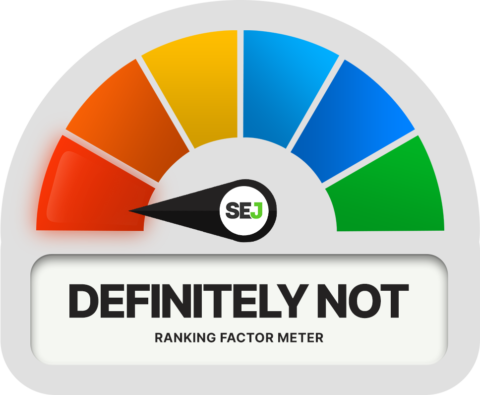The length of time between clicking the link to view the webpage and clicking the back button to return to search results is referred to as dwell time.
On paper, it sounds like an effective metric for measuring user satisfaction. This may seem like a reason for Google to rank the page higher in SERPs.
But is dwell time a genuine Google ranking factor?
Let’s look at what SEO experts claim, and then we’ll compare that with official statements from Google to try to get to the truth.
The Claim: Dwell Time Is A Ranking Factor
The term “dwell time” was first used by Bing – not Google – in a 2011 blog post. Bing said it is “a signal we watch.”
Experts claim dwell time is a Google ranking factor, with a longer dwell time having a positive impact on search position.
Dwell time is often examined in correlation studies to prove it’s important to SEO. These studies have found that a long dwell time correlates positively with high search rankings.
However, the same can be said for other metrics that have been debunked as Google ranking factors.
The adage correlation doesn’t equal causation should be kept top of mind when reading any studies about ranking factors that aren’t recognized by Google.
With that said, what is Google’s official position on dwell time and its impact on search rankings?
The Evidence: Dwell Time As A Ranking Factor
Google has repeatedly denied that dwell time, or any other user interaction metric, is a factor for search rankings.
Google’s Gary Illyes once addressed these theories, and one of the individuals who perpetuates them, saying they’re all made up:
“Dwell time, CTR, whatever Fishkin’s new theory is, those are generally made up crap. Search is much more simple than people think.”
Google’s Martin Splitt debunked this theory as well, saying user interaction metrics are not used for search.
Those are only a couple of recent examples.
Every time dwell time comes up in discussion as a potential ranking factor, Google has been quick to shoot the theory down.
With that being the case, we’re not going to look at any evidence that attempts to prove dwell time has a direct impact on SEO, as that’s all conjecture.
That’s not to say dwell time isn’t worth thinking about. It can be a useful way of gauging how satisfied users are with your website’s content.
If you’re optimizing for a longer dwell time by giving users more content to consume on your webpages, that could potentially lead to a positive, though indirect, impact on your rankings.
Dwell Time As A Ranking Factor: Our Verdict

Based on all of the available evidence, we’re confident that dwell time is not a direct Google ranking factor.
However, let’s be clear: Google’s search team is more than likely looking at dwell time (or whatever Google may call this metric internally), as well as other engagement metrics.
Remember that dwell time is a metric. It’s more of a check – just one way Google can measure whether its algorithms are providing the best possible search results.
Think of dwell time like click-through rate, bounce rate, and other data points that you can track in Google Analytics, Search Console, and other tools. These metrics are all indicators of the health of your website, but the metrics themselves have no direct impact on your rankings.
You can’t optimize your dwell time. But you can influence your dwell time by making your content better, more useful, valuable, unique, engaging, etc.
Ultimately, it’s all a moot point anyway. The only way you will ever see dwell time data is if you work at a search engine.
As Duane Forrester put it in his Search Engine Journal article, “What Is Dwell Time & Why It Matters for SEO,” “chasing dwell time is not a good use of your time.”
Bottom line: How users interact with webpages after leaving search results does not factor into Google’s search rankings. Be highly skeptical of any studies, articles, or presentations that say dwell time is a ranking factor.
Featured image: Paulo Bobita


